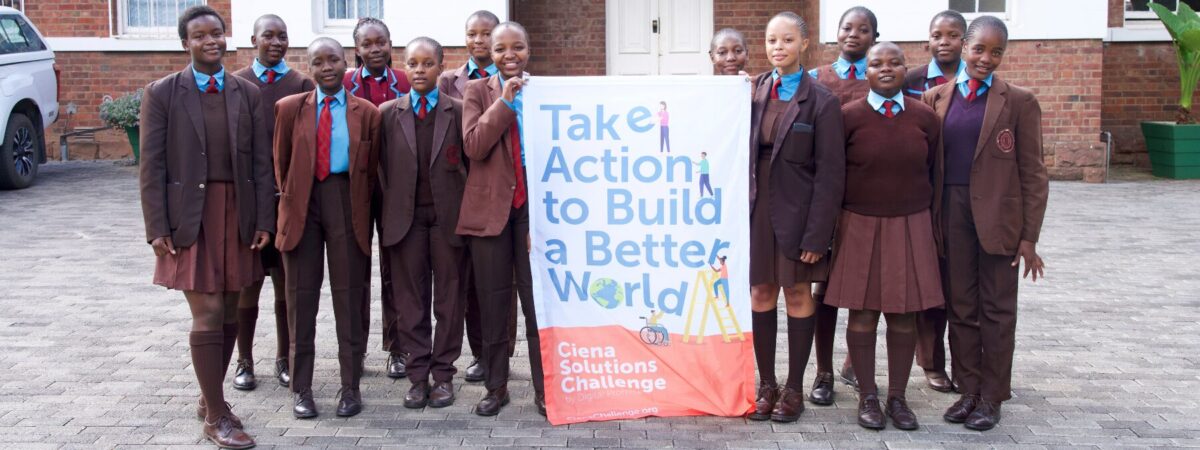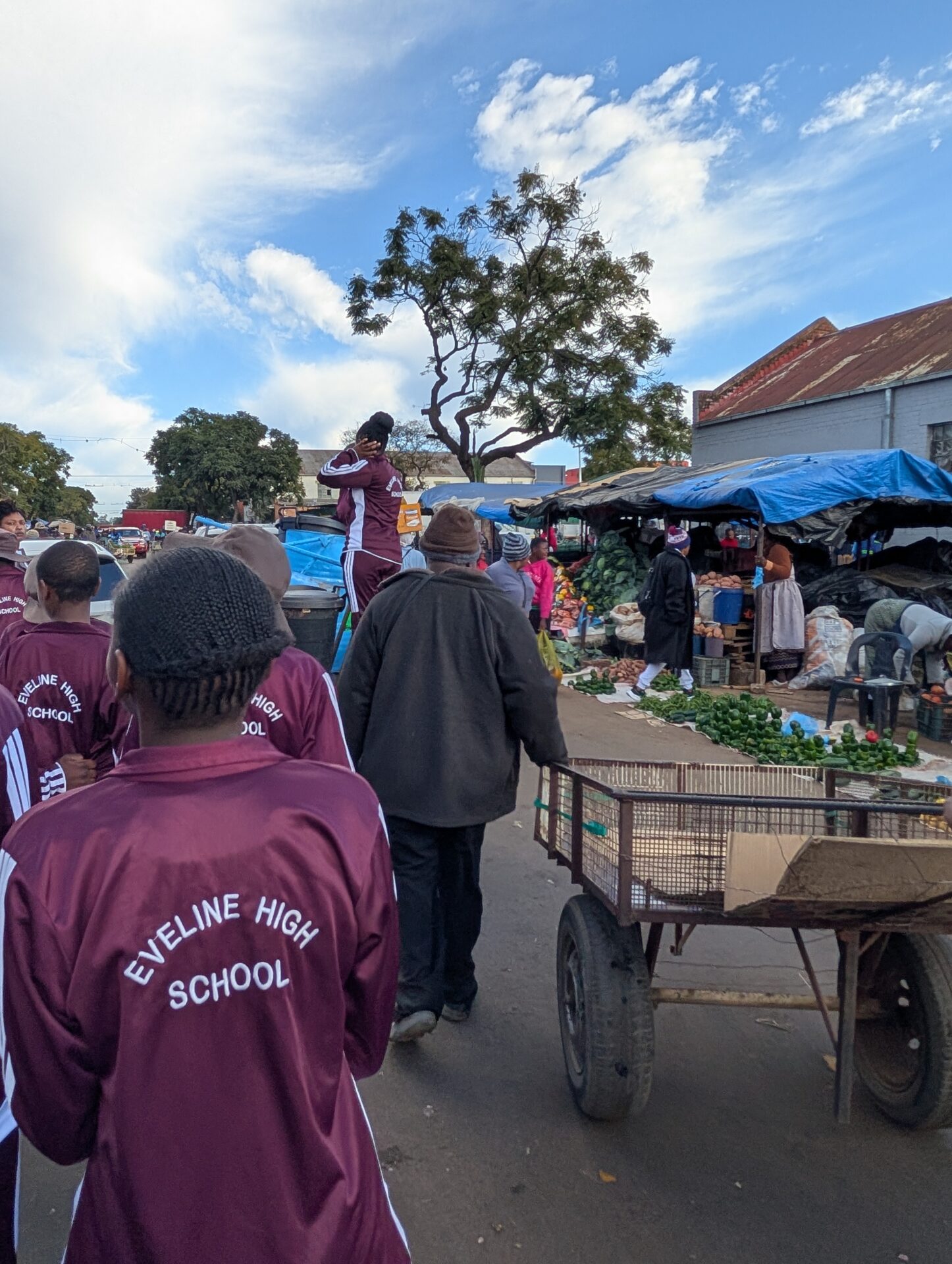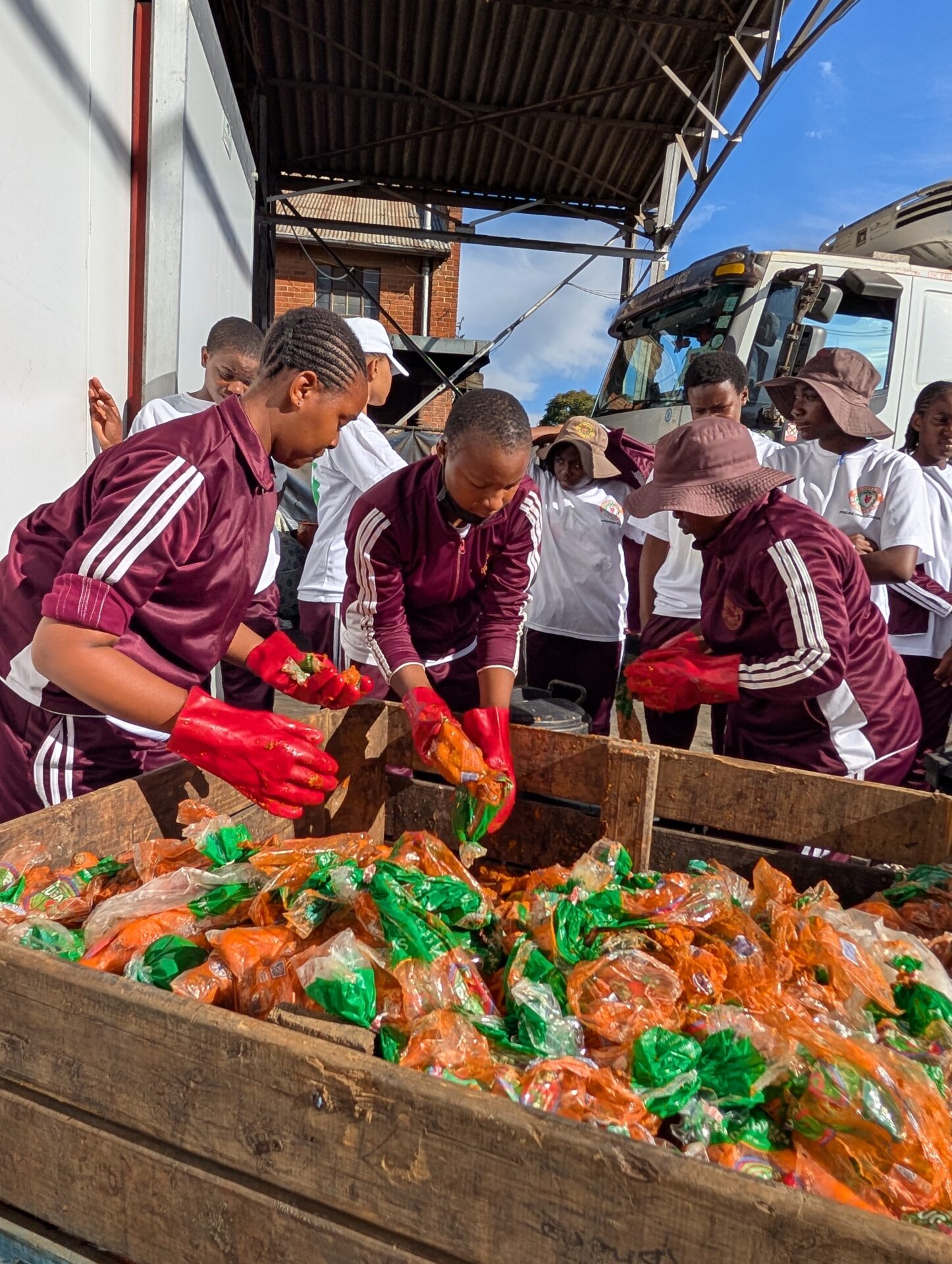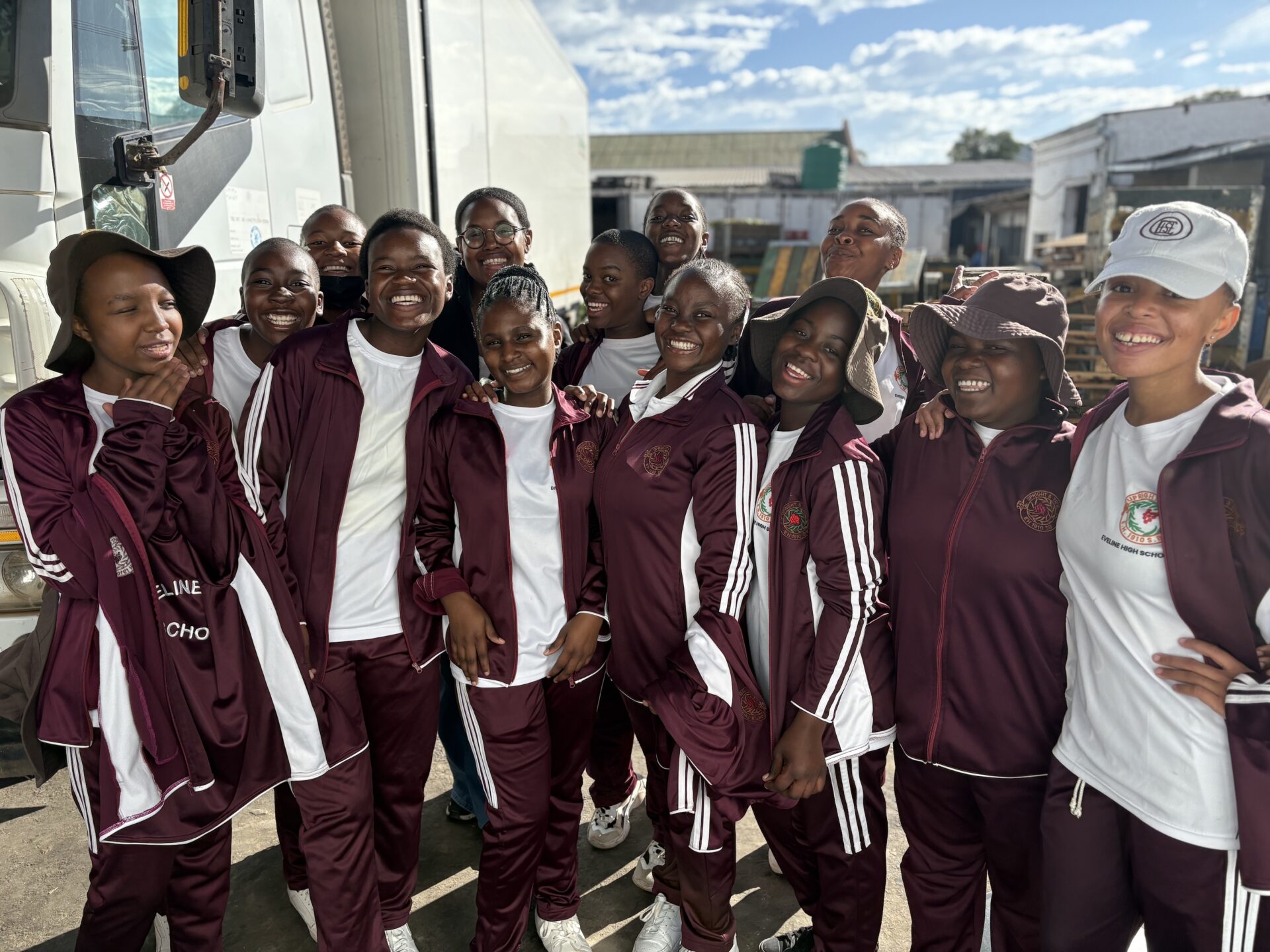
The students set out to create something to help keep the market clean. They started by surveying vendors to understand how they could make a difference. They learned that vendors needed more frequent waste collection and decided they could meet that need by setting up their own collection system. Some students wondered how they could turn the waste into something valuable. This led them to start their project Green Cycle, where they collect biodegradable waste from the market and compost it into liquid fertilizer for their school garden.

Students walk through the market to collect and deposit their bins for composting.
Throughout these challenges, their teachers encouraged them to be persistent in finding solutions. As chemistry teacher Gladmore Chadzamira said, “I believe in experimentation. So they should do some experiments on a small scale, then when the experiments flopped, they had to try again. Change the conditions, change the variables, then try again.”
With Green Cycle now up and running, the students deposit and collect the bins stationed throughout the market twice a week. They compost the contents in their biodigester, a large tank set up in an auxiliary space at their school. They produce liquid fertilizer to use in their school garden, which is lush with fruit trees and crops of leafy greens.
“After [completing] this project, I felt like ‘wow, I did it!’…I think learning in this way is important.” – Snenkosi, student

With the help of faculty, students transport their bins to the local market.

Students collect carrots at the market.
As the market is run by the city, Ward 1 City Councilor Josiah Mutangi had to initially give approval for students to run Green Cycle. Now that it is in full effect, he compliments the students for how they’ve made a positive impact in Bulawayo and calls their project “one of its kind.”

Participating teachers and students use the Challenge Based Learning framework to identify and learn more about issues affecting their communities, and work to develop a solution. Challenge Based Learning is adaptable to all kinds of contexts—across subjects, disciplines, grades, and learning environments.
Through the Ciena Solutions Challenge, teachers globally can apply for $3,000 to sustain and scale students’ projects. Learn more and register at cienachallenge.org.